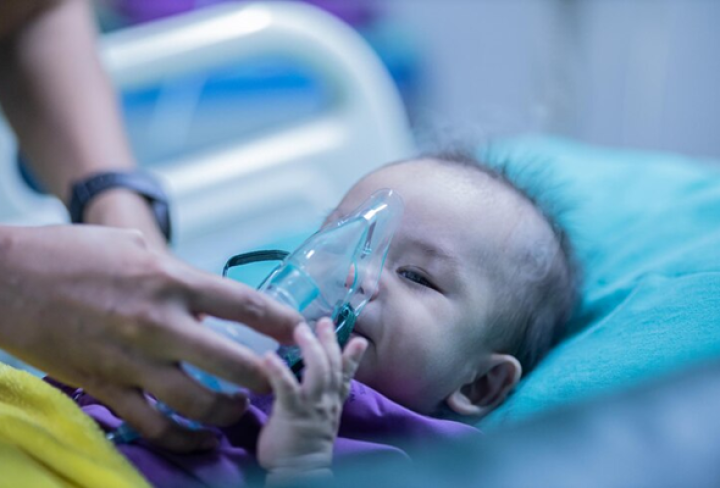A lung infection that affects infants under 28 days of age. It is a serious condition that can lead to severe complications and even death if not treated promptly. In this article, we will discuss the symptoms, causes, diagnosis, treatment, prevention, dos and don’ts in treating neonatal pneumonia, when to see a doctor, and some frequently asked questions with references.
Symptoms:
The symptoms of neonatal pneumonia can be similar to those of other illnesses, making it difficult to diagnose. The common symptoms include:
Rapid breathing
Chest retractions (when the skin between the ribs pulls in during breathing)
Wheezing
Cough
Bluish skin color (cyanosis)
Fever or low body temperature
Poor feeding or not feeding well
Lethargy or irritability
Causes:
Neonatal pneumonia can be caused by a variety of bacteria, viruses, and fungi. The most common bacterial causes of neonatal pneumonia are group B streptococcus, Escherichia coli, and Listeria monocytogenes. Viral causes include respiratory syncytial virus (RSV), influenza virus, and adenovirus. Fungal infections are less common causes of neonatal pneumonia.
The infection can be acquired from the mother during delivery, from the hospital environment, or from community-acquired sources.
Diagnosis:
The diagnosis of neonatal pneumonia is made based on the infant’s symptoms, medical history, and physical examination. The doctor may order diagnostic tests such as chest X-ray, blood tests, and a culture of the infant’s respiratory secretions to identify the causative agent of the infection.
Treatment:
The treatment of neonatal pneumonia depends on the severity of the infection and the causative agent. The treatment typically involves antibiotics, antivirals, or antifungals depending on the causative agent. Oxygen therapy may be needed in severe cases. Hospitalization is often necessary for infants with neonatal pneumonia.
Prevention:
Preventing neonatal pneumonia involves taking measures to reduce the risk of infection. Some of the preventive measures include:
Screening pregnant women for group B streptococcus during pregnancy and administering prophylactic antibiotics to those who test positive.
Practicing good hand hygiene when caring for the infant.
Limiting exposure of the infant to sick individuals.
Avoiding smoking around the infant.
Proper immunization of the mother during pregnancy.
Dos and don’ts in treating neonatal pneumonia:
Dos:
Follow the treatment plan prescribed by the doctor.
Ensure the infant gets adequate rest and nutrition.
Provide a clean and safe environment for the infant.
Administer medications as prescribed by the doctor.
Monitor the infant’s temperature and breathing regularly.
Don’ts:
Do not smoke around the infant.
Do not expose the infant to sick individuals.
Do not give the infant any medication without consulting the doctor.
Do not delay seeking medical attention if the infant shows signs of worsening symptoms.
When to see a doctor:
If your infant shows any of the symptoms of neonatal pneumonia, it is important to seek medical attention immediately. Prompt treatment can prevent serious complications and even death.
Frequently Asked Questions (FAQs):
Q: Can neonatal pneumonia be prevented?
A: Yes, neonatal pneumonia can be prevented by taking measures to reduce the risk of infection, such as screening pregnant women for group B streptococcus and practicing good hand hygiene when caring for the infant.
Q: Is neonatal pneumonia contagious?
A: Yes, neonatal pneumonia can be contagious, especially if it is caused by a viral or bacterial infection.


